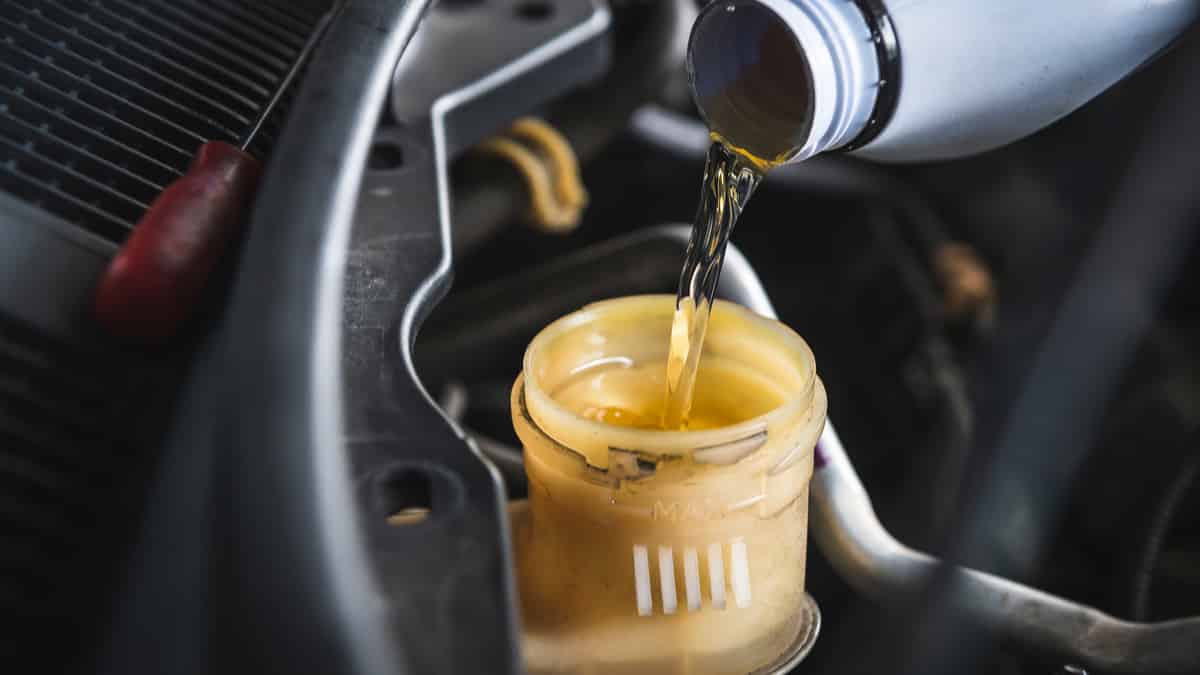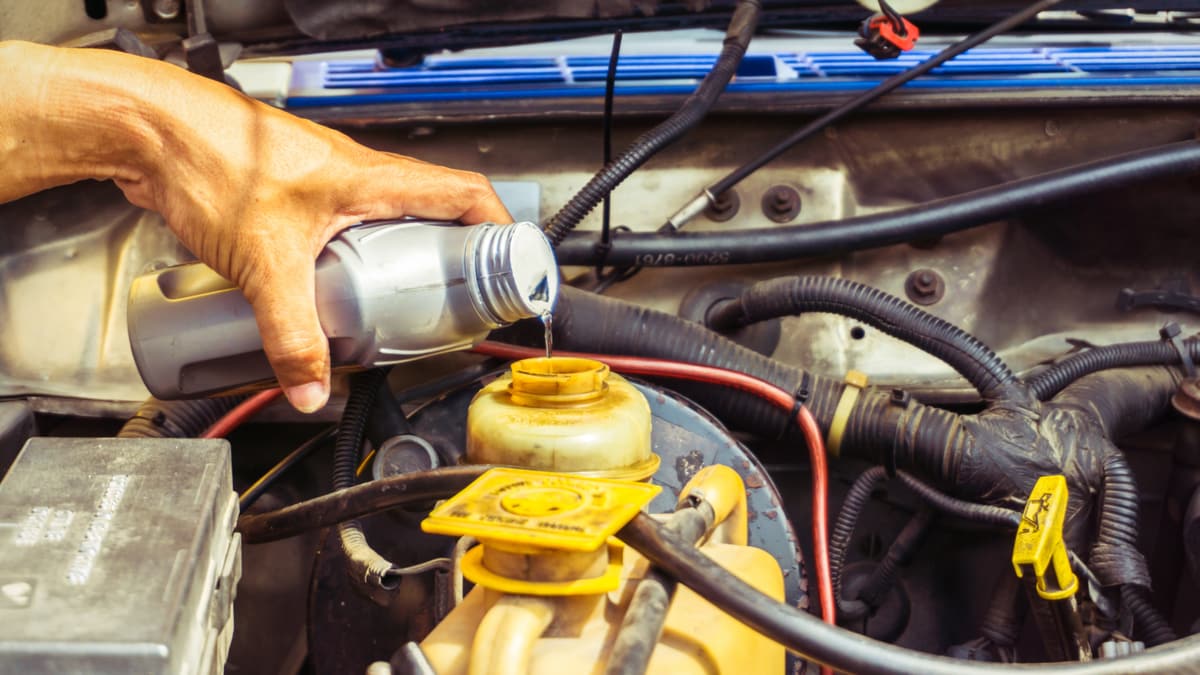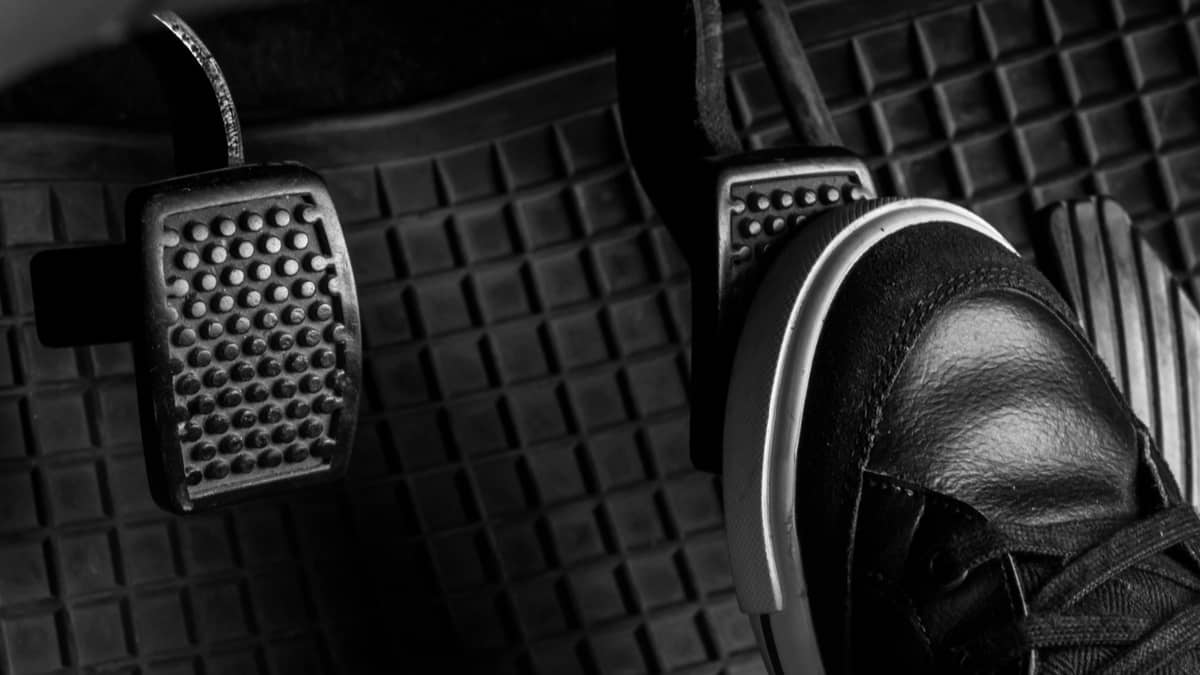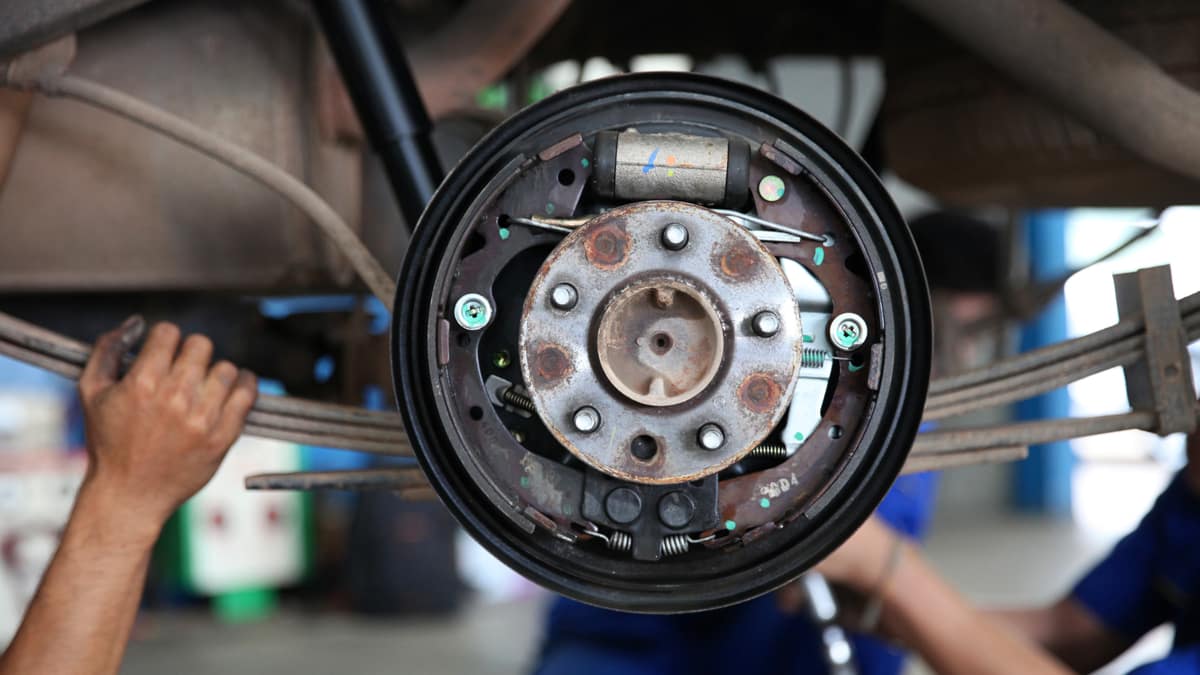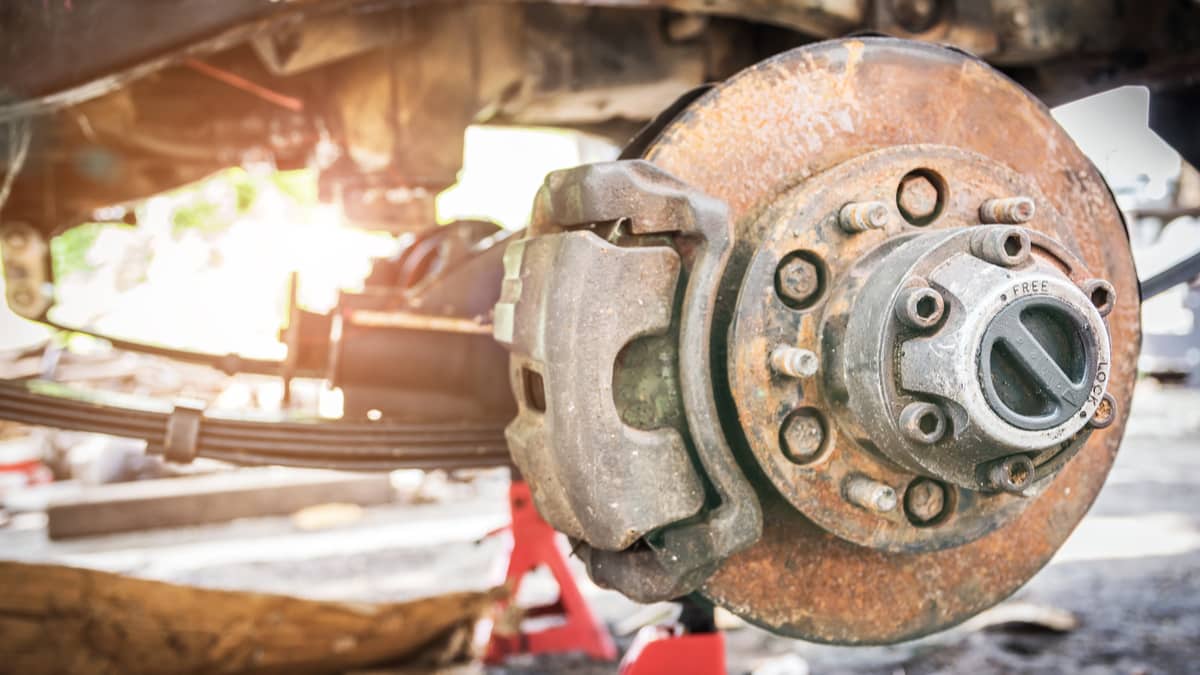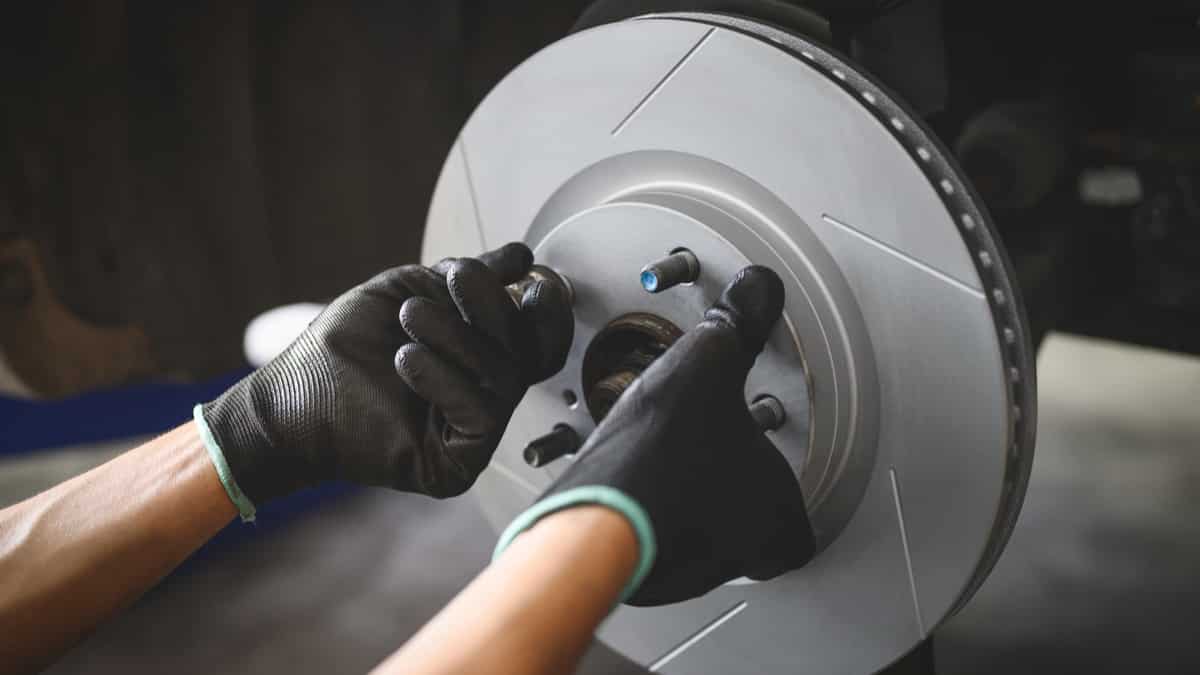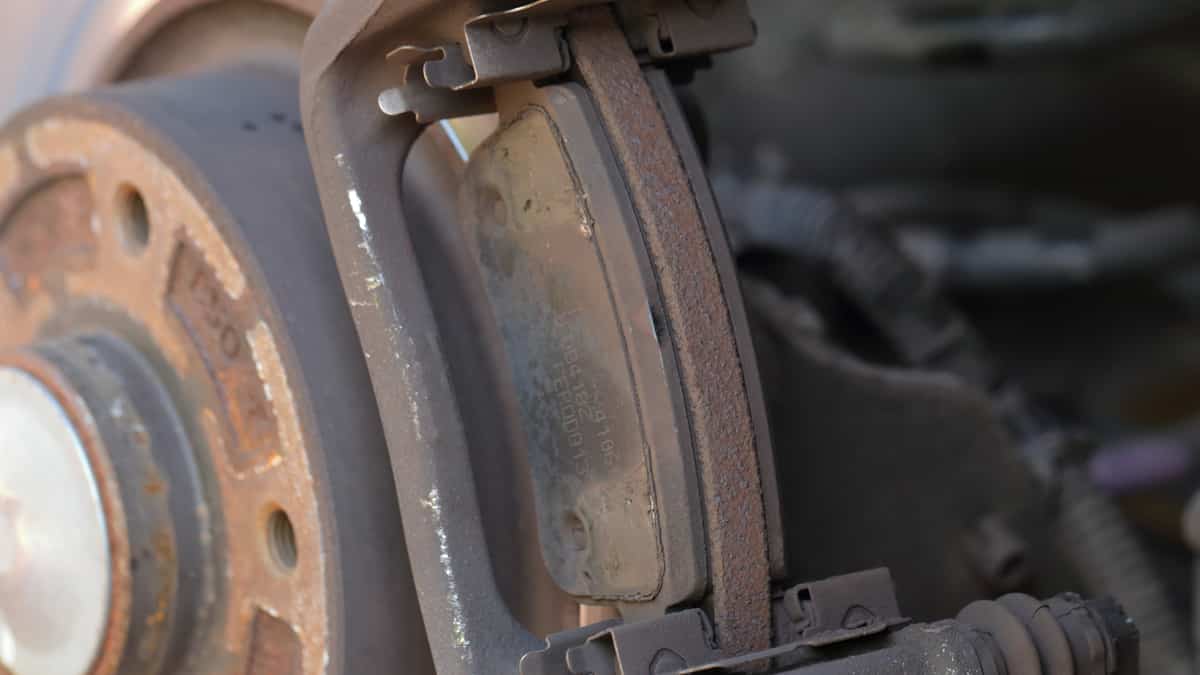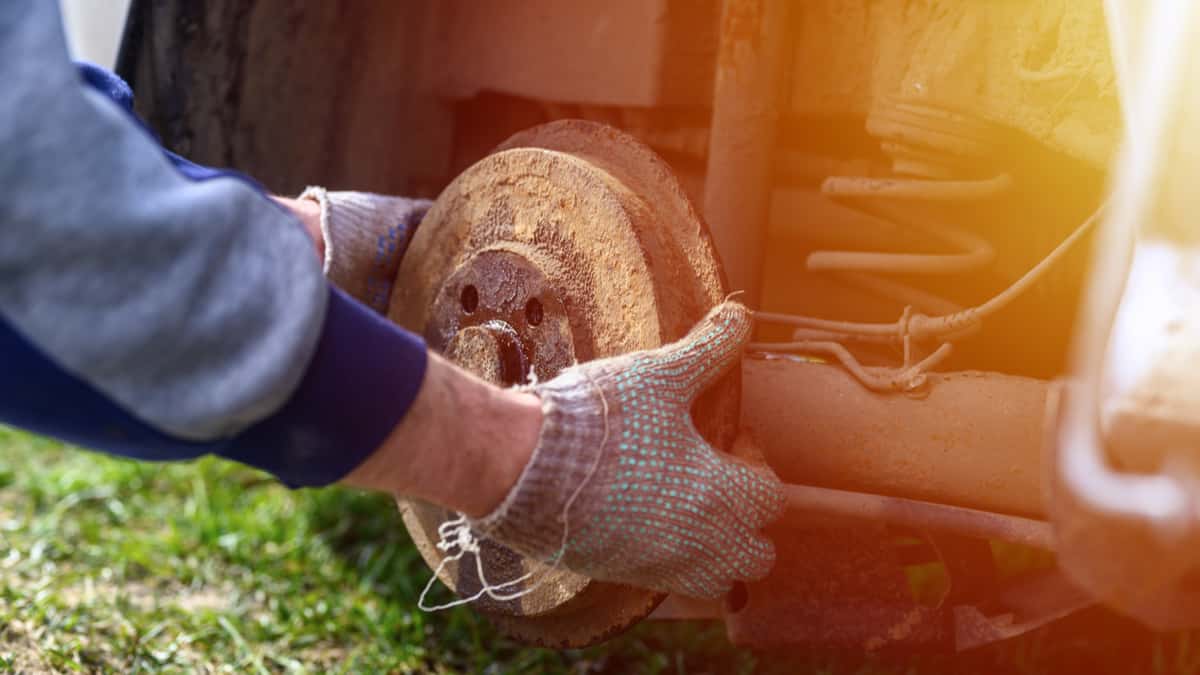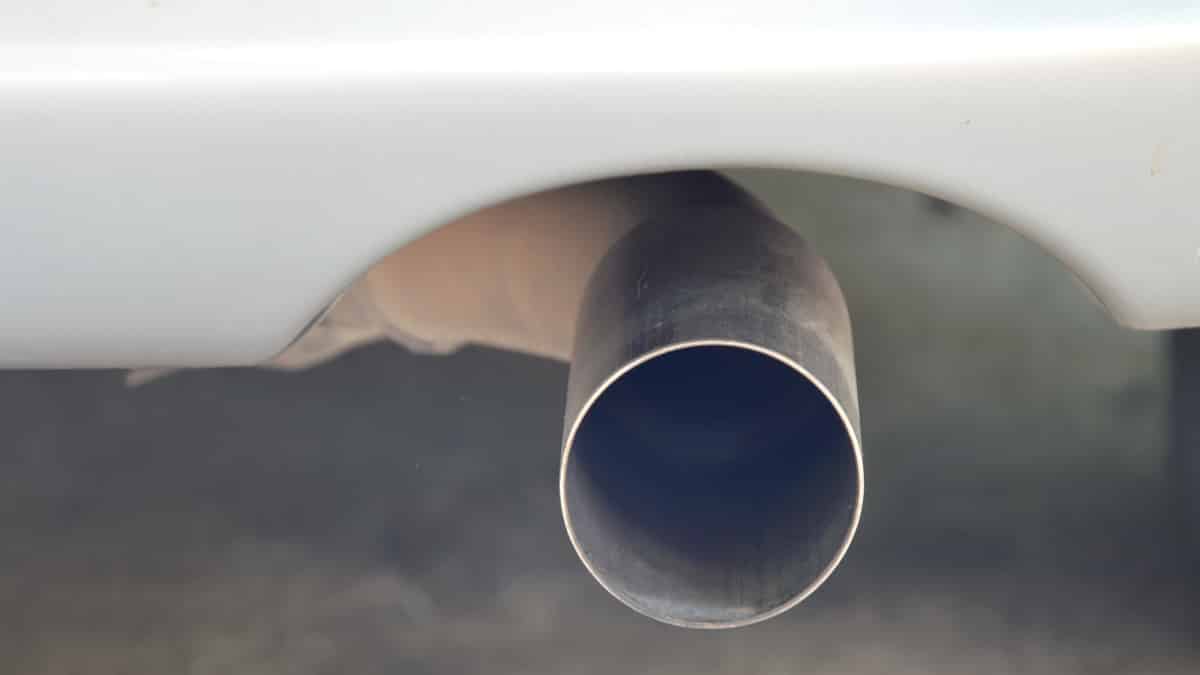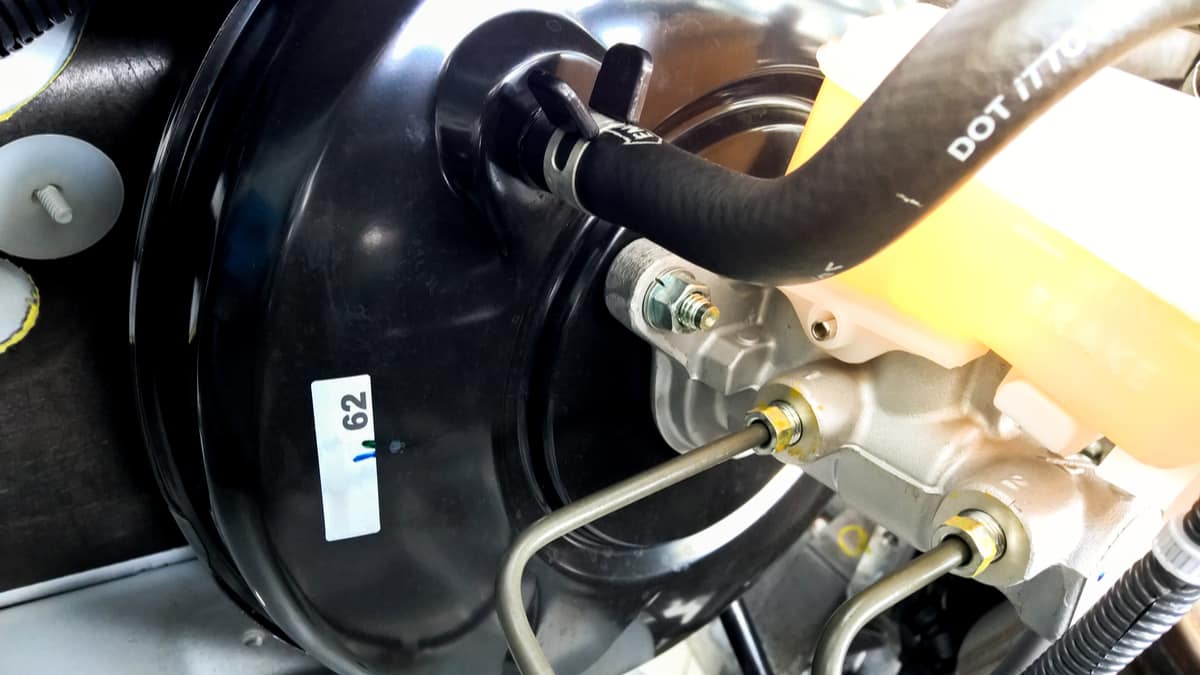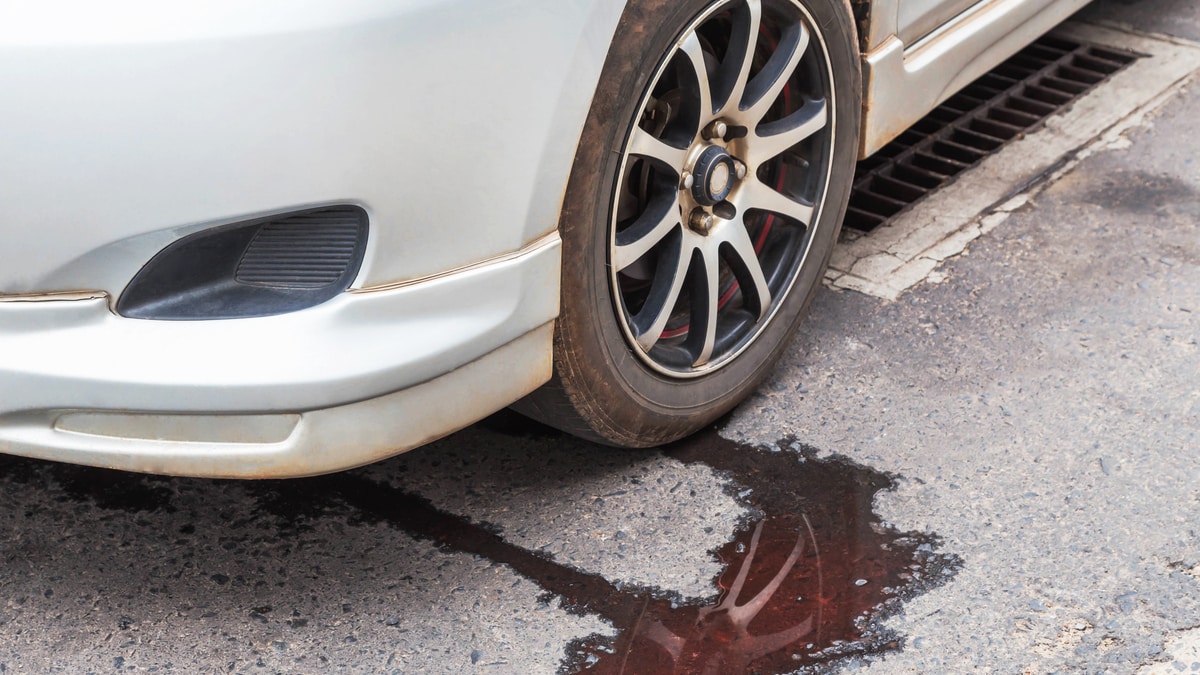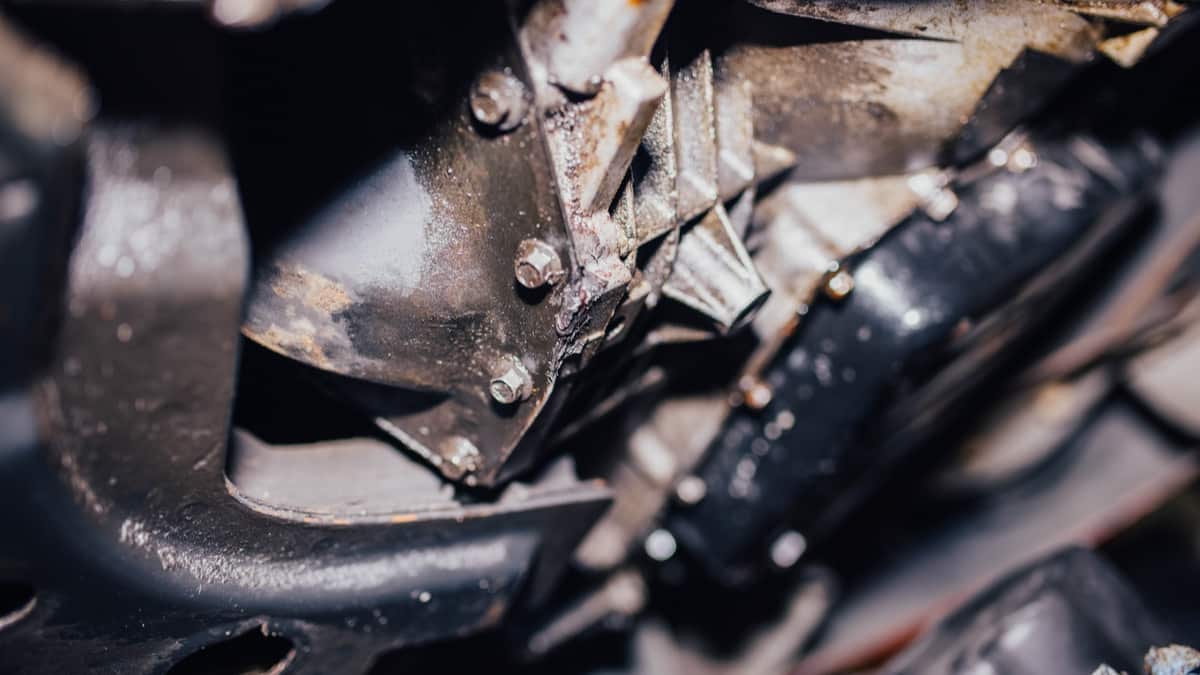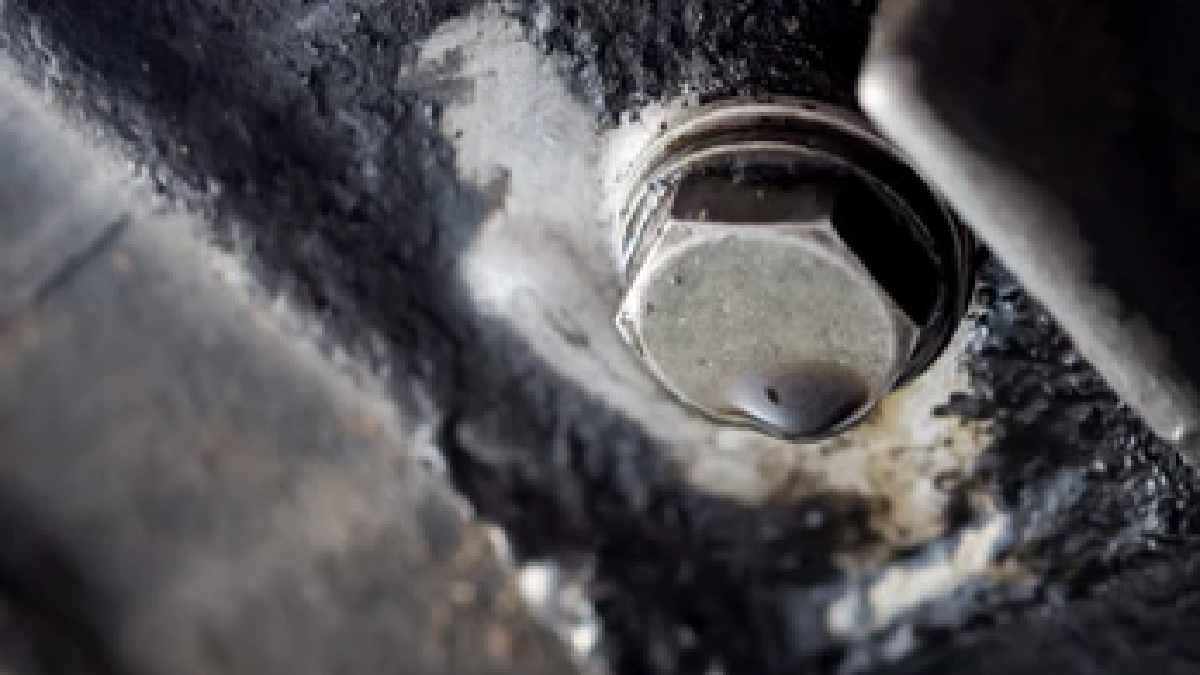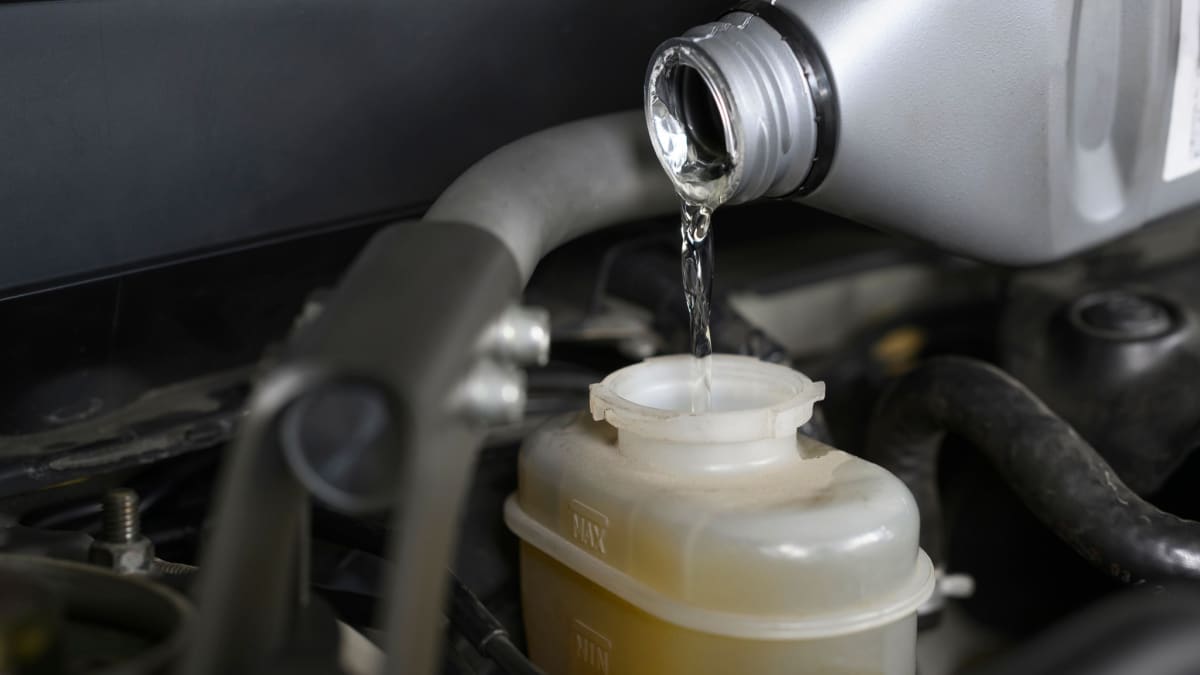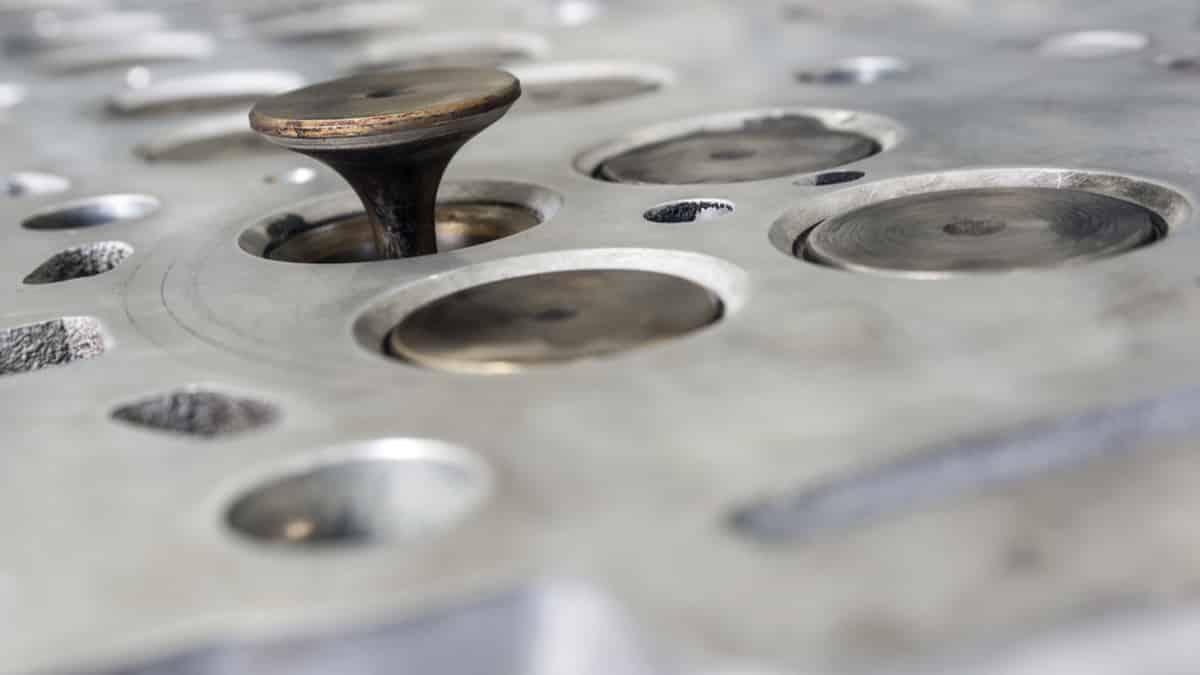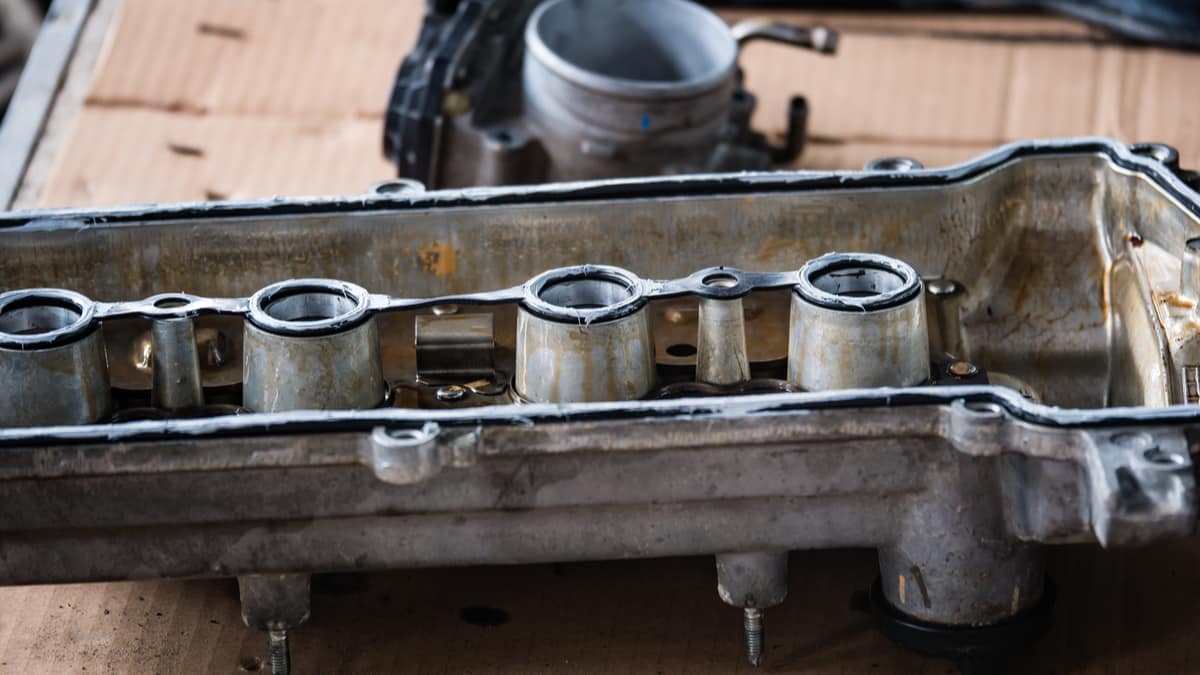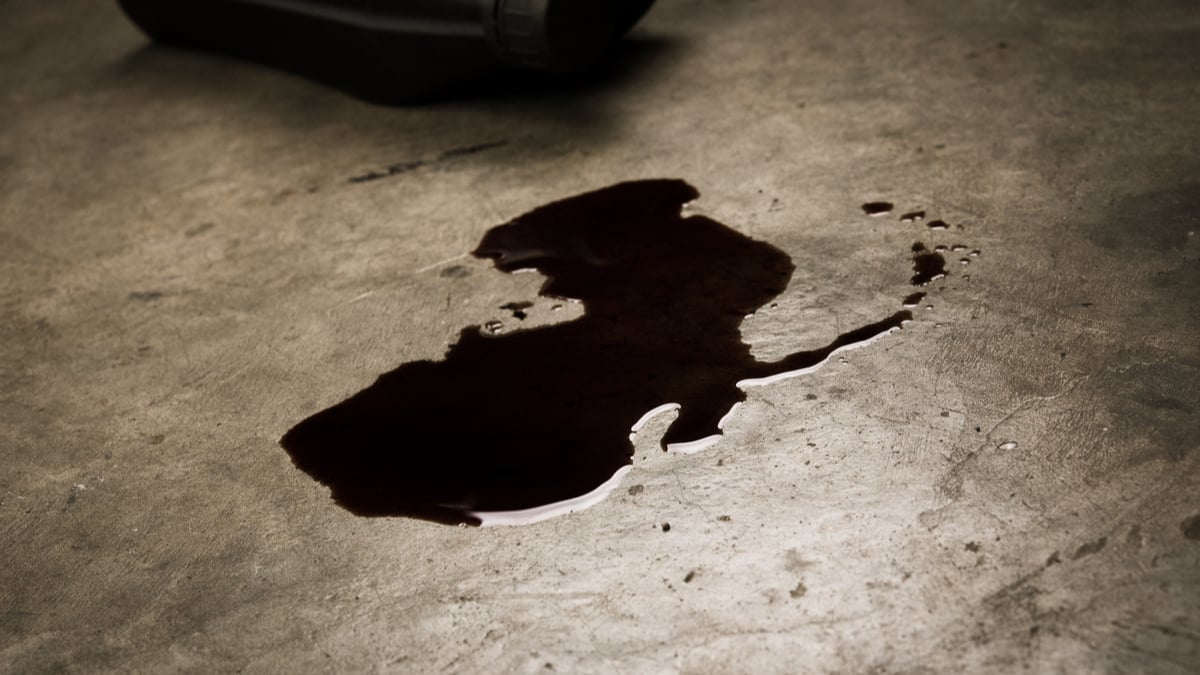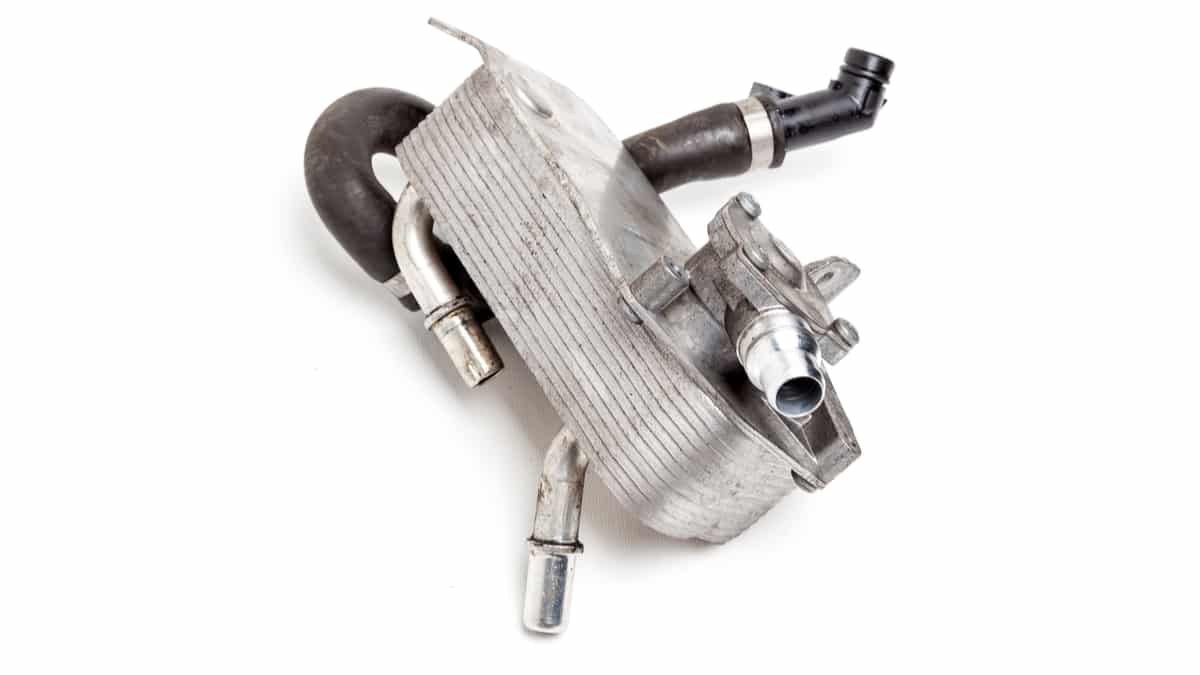There’s no questioning that there are few components more critical to your vehicle than the brakes. That’s why you might be surprised to learn that you can’t always trust your vehicle to tell you if there’s a problem with the brake system.
This is especially true if your brake system has a leak. Even worse, the scary thing about leaks is that a small leak can turn into a full-blown blowout with one push of the pedal.
But how can you tell if your brake system has a leak, and how can you repair the problem? I’ll break down everything you need to know here.
Brake Fluid Leak Symptoms
The main symptoms of a brake fluid leak include:
- Squishy Brake Pedal
- No Pressure in the Brake Pedal
- Poor Braking Performance
- Visible Fluid Leak
- Brake Warning Light
While these are the most common signs, it’s not all of them! Here down below is a more detailed list of the signs of a brake fluid leak to look for:
1. Squishy Brake Pedal
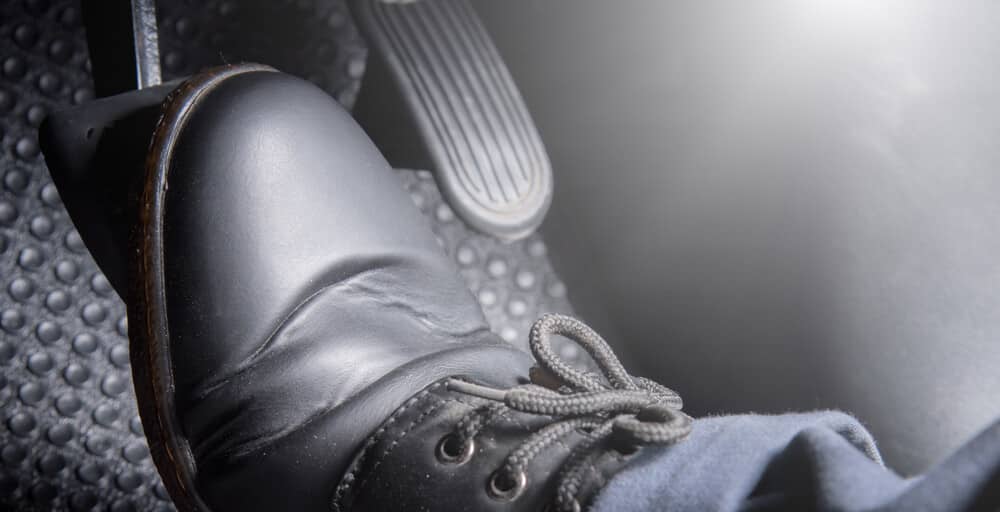
Any time there’s air in the system, you’re going to have a brake pedal that feels squishy. When you have a brake fluid leak, you’re not just losing brake fluid every time you press the brakes, but you’re also sucking in air every time you let off the pedal.
If you’re pressing the brakes and it doesn’t feel right, don’t ignore it and hope it goes away. Figure out what’s going on and make the necessary repairs straight away.
2. No Pressure in the Brake Pedal
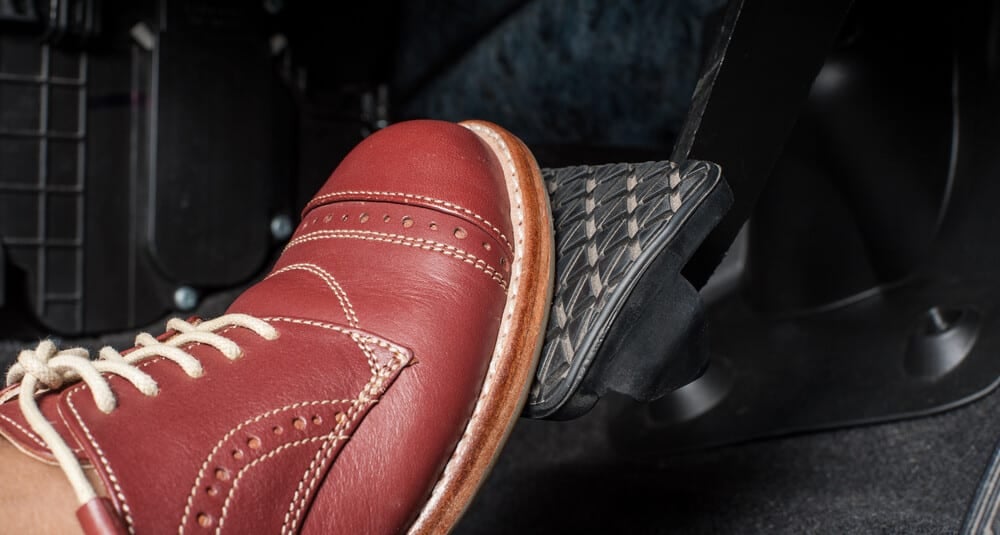
When you press the brake pedal, you should feel something – if it sinks straight to the floor, you have a problem. While several conditions could cause this, if it worked fine the last time you got in your vehicle, chances are you have a massive brake fluid leak.
Whatever you do, don’t drive your vehicle. If you don’t feel any pressure when you hit the brake pedal, you currently don’t have any brakes – which means you won’t be able to stop as your driving.
3. Poor Braking Performance
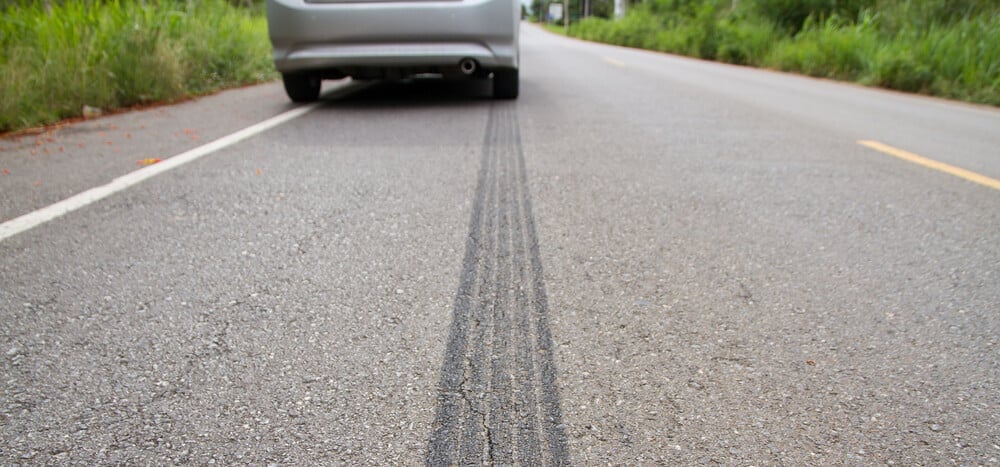
This might be the first thing that you notice if you have a brake fluid leak. When you hit the brakes, you expect to stop after a certain distance. But when your brake system has a leak, you’re not getting maximum braking pressure – some of that pressure is escaping out through the leak.
Moreover, you’re getting air and moisture in the system, which is negatively impacting your braking performance too. Add it all up, and you get a dangerous condition where your vehicle can’t stop like you’re expecting it to.
4. Visible Fluid Leak
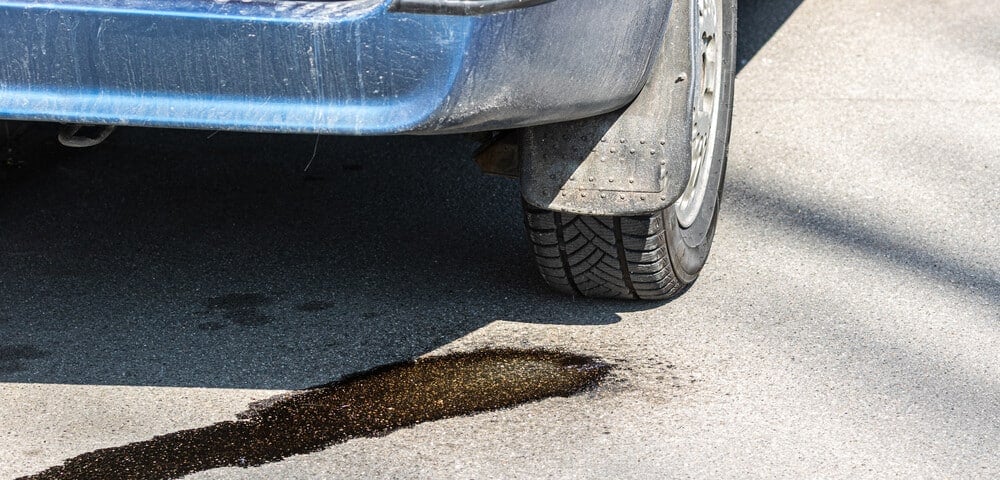
If your vehicle has a leak, that means that fluid is going somewhere, right? If you have a brake fluid leak, you have a visible leak somewhere. The problem is that brake fluid leaks are incredibly hard to find. The fluid itself is mostly transparent, and there’s not that much brake fluid in the system to begin with.
It’s not like oil or coolant leaks – these, you’d likely notice simply by looking underneath your vehicle. You usually have to look for brake fluid leaks. If you find one, you have a big problem you need to address right away.
5. Brake Warning Light
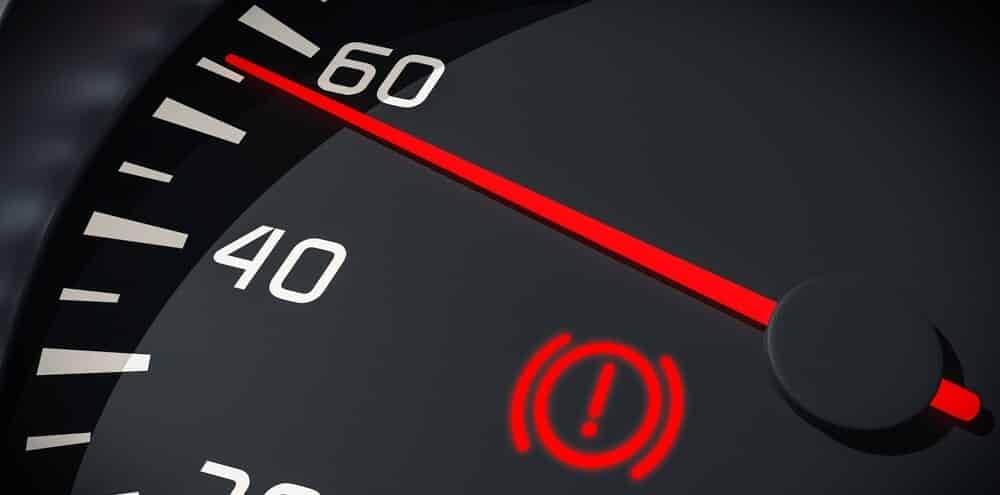
While you might expect that the brake warning light would pop on any time you have a brake fluid leak, the sad truth is that it doesn’t always work that way.
The brake warning light will show up when the level in the brake fluid reservoir is too low. Remember that not all car models have this feature, though, and if you have a big leak, you will have problems even before the fluid gets low.
Even small brake fluid leaks mean big problems, so you can’t rely solely on your brake warning light to keep you safe.
How to Diagnose a Brake Fluid Leak
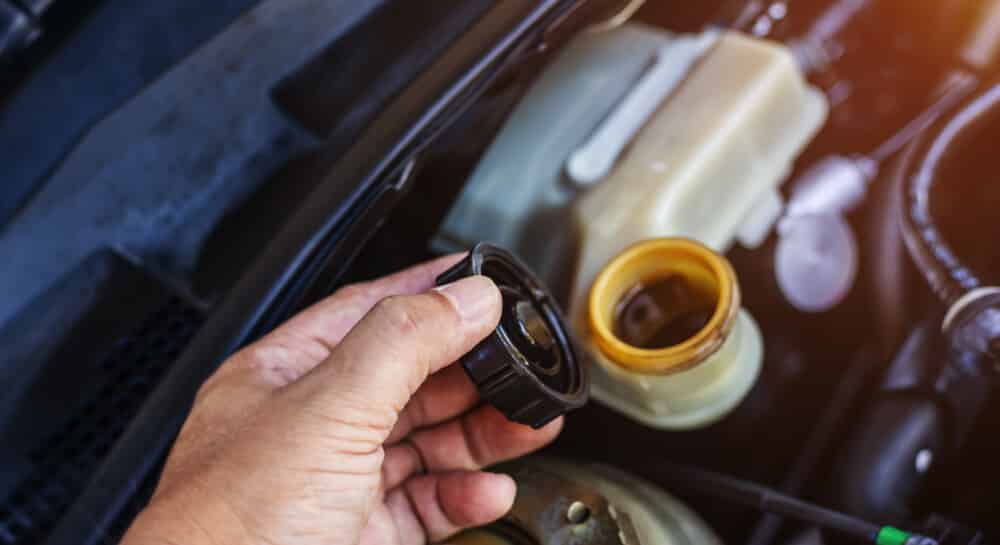
The best way to diagnose a brake fluid leak is through a visual inspection. You should start with the reservoir before inspecting the remaining components.
While the brake fluid system is sealed, that doesn’t mean that anytime you see the fluid level in the reservoir drop, you have a problem. That’s because as the pistons in the brake calipers expand, the overall brake fluid level will drop, too.
But this drop should be gradual – and you should always have some brake fluid there. Because of this, monitoring the brake fluid level is one of the best ways to make sure your vehicle doesn’t have a leak. If you know how quickly the brake fluid should drop, you’ll have a better idea of what an abnormal drop looks like.
From there, the next best thing you can do is complete a visual inspection of all the brake components. This means everything from the master cylinder to the calipers at each wheel. You might need to jack up your vehicle to trace all the brake lines, but it’s worth it.
If you have a brake leak, you will see it. Just make sure to check when your vehicle is dry and pump the brakes a few times before you start.
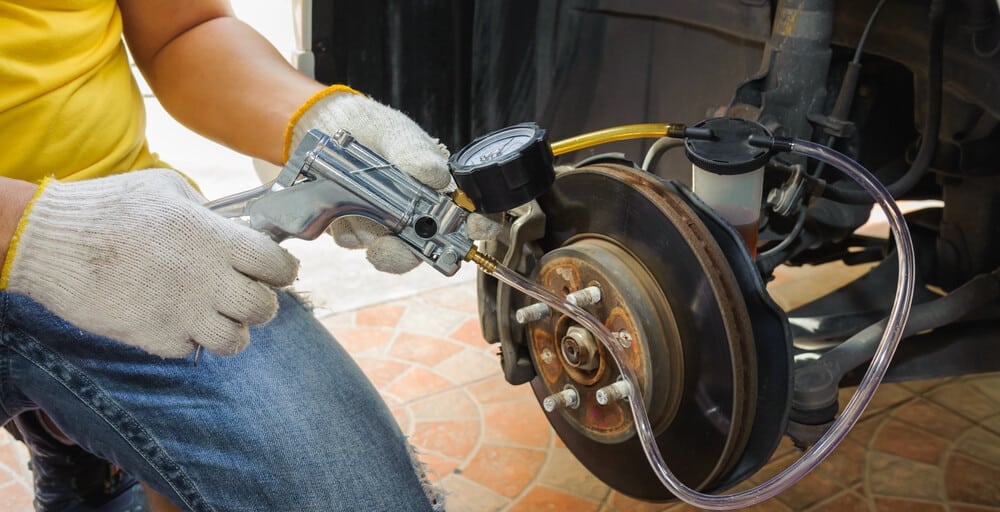
Repair Costs to Fix a Brake Fluid Leak
The average brake fluid leak repair cost is between $150 and $1,000. While that’s a vast range, it’s because there is a wide array of causes of a brake fluid leak.
For instance, the cost to replace a brake line ranges anywhere from $150 to $200, while the cost to replace a brake booster can cost you anywhere from $600 to $800.
Complicating the matter even more, there’s no one cause that’s significantly more common than the rest. If you dive in an area with lots of salt on the road or by the coast with lots of salt in the air, you might experience rusted brake lines more frequently, but other drivers might find that they need to replace the master cylinder more often.
Finally, because some jobs are easier to complete than others, you may or may not be able to rule out the labor costs. As an example, if you need to replace a brake line and can’t find the OEM replacement, the repair shop may need to make it. You likely don’t have the tools for this, even if you have the necessary expertise.
Can you drive with a brake fluid leak?
No. You should never drive with a brake fluid leak – not even a small one. A brake fluid leak can result in the complete loss of your car’s braking ability, which is life-threatening for both you and other people on the road.
How do you stop a brake fluid leak?
To stop a brake fluid leak, you need to replace or fix the leaking part. There is no anti-leakage additive you should use for the brakes. All work on the car’s hydraulic brake system should be carried out by a professional to prevent accidents.
Will brakes still work without fluid?
No. Without brake fluid, your brakes will not work. Brake fluid is essential for the operation of your brakes. It provides the necessary pressure to activate the brake pads and calipers, which in turn stops your car. If you don’t have any brake fluid in your system, your brakes will not be able to function properly.
Can you mix old and new brake fluid?
If you only fill up your brake fluid, it is perfectly fine to mix old and new brake fluid. It is definitely better to replace the brake fluid completely, but in many cases it is not necessary. Just make sure you use brake fluid with the correct specifications for your car.
Categories: Brakes
